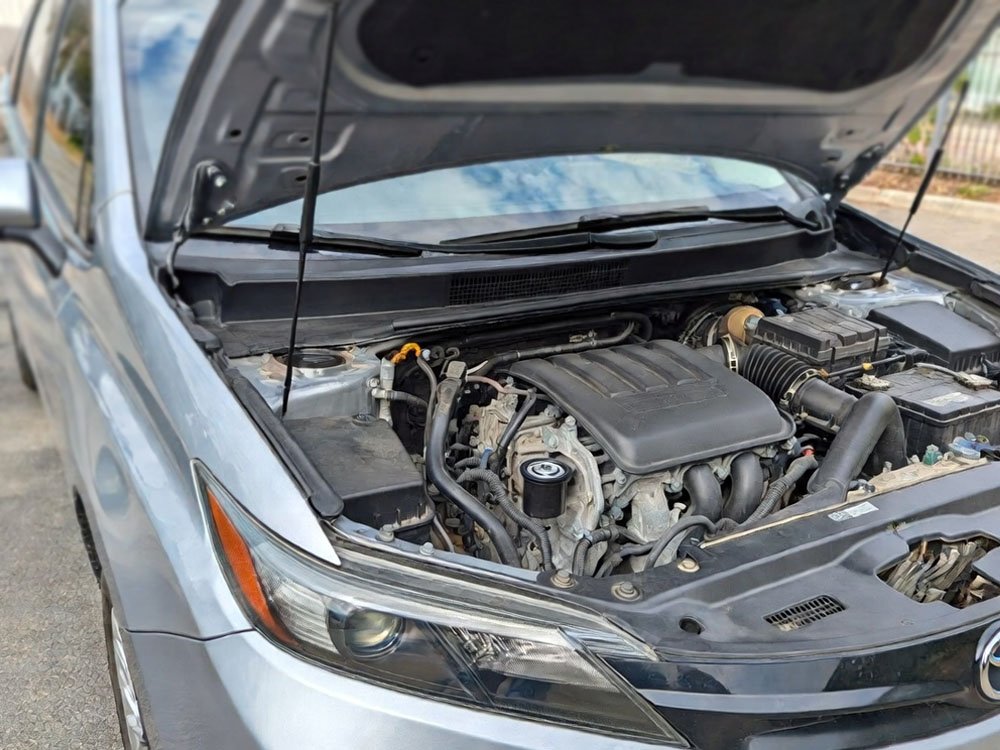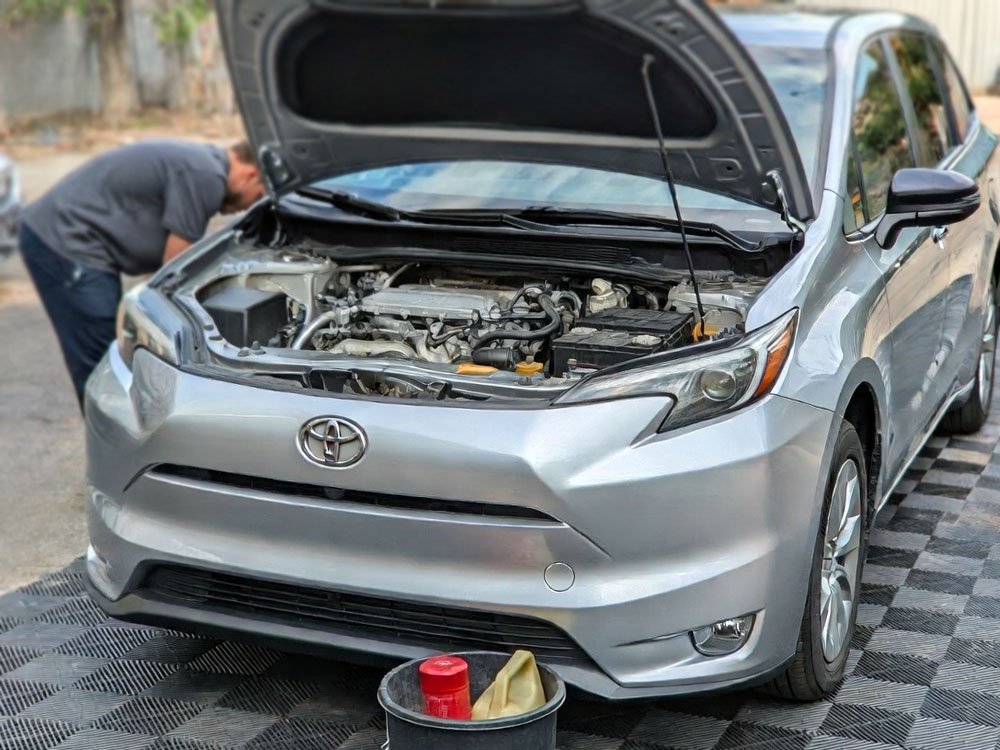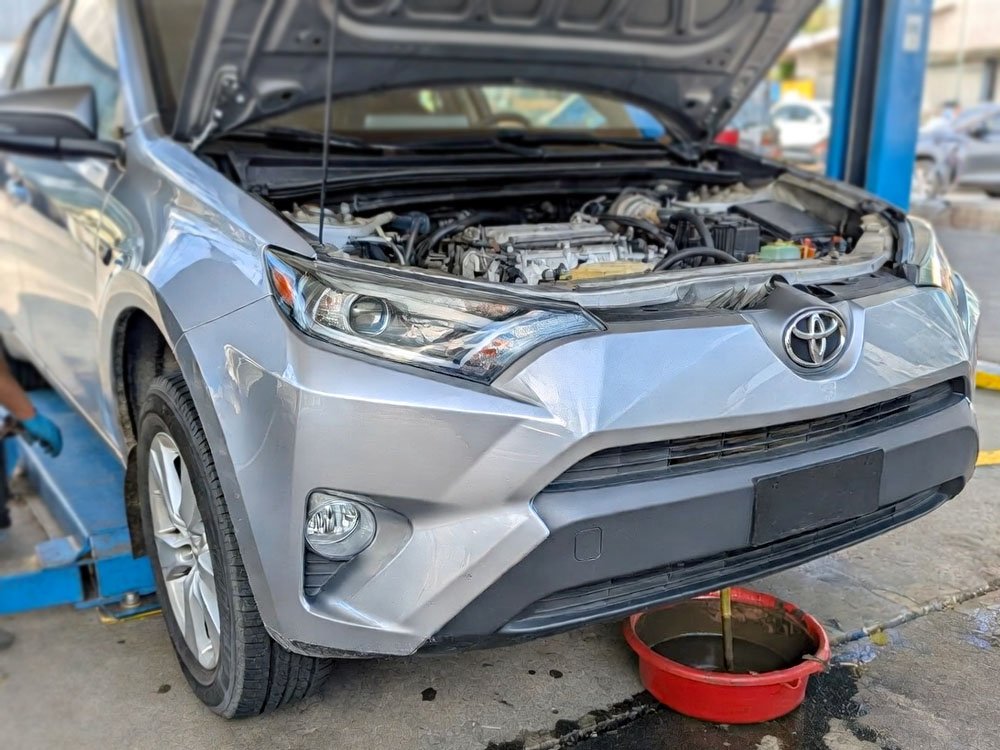As an Amazon Associate, I earn from qualifying purchases at no extra cost to you.
How to Tell if Your Alternator is Broken: A Complete Guide
When your car starts acting up, one of the first things you might think about is the alternator. It's one of those crucial parts that keeps your car running smoothly, but many people don't know much about it. If you're experiencing any electrical issues in your vehicle, your alternator might be the cause. In this article, we'll walk you through how to tell if your alternator is broken and what to do about it.
Signs Your Alternator May Be Failing
Your alternator plays an important role in charging your car's battery and powering the electrical systems. So when it starts to fail, it can cause all sorts of problems. The good news is, your car will usually show signs of an alternator problem long before it completely stops working.
1. Dashboard Warning Lights
One of the most obvious signs of alternator trouble is the appearance of warning lights on your dashboard. Most cars are equipped with a battery warning light that turns on if the alternator isn't working properly. If you see this light flicker or stay on, it could mean your alternator is struggling to charge the battery.
2. Dimming or Flickering Lights
If the lights inside your car or the headlights flicker or dim, it may be a sign that the alternator is failing to produce enough power. A working alternator ensures that your car's electrical components get the power they need, so any fluctuation in brightness could signal a problem.
3. Strange Noises
Your car's alternator has several moving parts, including a belt that can wear out or become misaligned. If the alternator's bearings or belt are damaged, you might hear a whining or grinding noise coming from the engine bay. This sound can be especially noticeable when you turn on your car, and it could indicate that your alternator is struggling to operate.
4. Electrical Failures
If you notice that your radio, air conditioning, power windows, or other electrical components start to fail or act erratically, it could be because the alternator is not supplying enough power. Since the alternator is responsible for powering all these systems, any issues with them might indicate a problem with the alternator.
5. Difficulty Starting the Car
When you turn the key in the ignition, the alternator should be providing enough power to start the engine. If the alternator is failing, it may not generate enough electricity to start your car properly. This can lead to sluggish starts or complete failure to start the vehicle.
6. Battery-Related Issues
Your car's battery and alternator work together to keep your vehicle running. If your alternator is failing, your battery may quickly lose charge because it's not getting enough power. You might find yourself needing to jump-start your car frequently or replacing the battery more often than normal.
7. Burning Smell
If your alternator is overheating, it can emit a burnt smell. This can be a sign that the alternator's bearings, wiring, or belt are worn out or damaged. A burning smell should never be ignored, as it may indicate serious electrical problems that could lead to further damage or even a fire.
How to Check Your Alternator with Simple Tests
If you suspect your alternator is broken, there are a few simple tests you can perform to confirm whether it's the cause of your car troubles. These tests don't require any special tools, just a little patience and attention to detail.
1. Check the Battery Light
As mentioned earlier, if your battery light comes on or stays on while driving, it's a clear indicator that your alternator may not be functioning properly. If the light turns on after you start your car, or if it stays on even when you're driving, it could mean your alternator is failing.
2. Inspect the Alternator Belt
One common reason for alternator problems is a worn or broken alternator belt. The belt connects the alternator to the engine and powers it. To check it, pop the hood and look for signs of wear, such as cracks, fraying, or looseness. If the belt looks worn, it might need to be replaced, or it could be causing the alternator to malfunction.
3. Use a Voltmeter to Test the Battery Voltage
A voltmeter is a simple tool that can help you check whether your alternator is charging your battery correctly. To do this, turn on your car and use the voltmeter to measure the voltage at the battery terminals. A healthy alternator should produce a reading of around 13.7 to 14.7 volts. If the reading is much lower or higher, it's a sign that your alternator may be malfunctioning.
4. Perform the Headlight Test
Start your car and turn on the headlights. While the car is running, rev the engine slightly and watch the headlights. If the brightness increases as the engine speed increases, the alternator is likely working fine. However, if the lights stay dim or flicker, this may indicate a problem with the alternator.
5. Listen for Strange Noises
If you hear any whining, grinding, or squealing noises coming from the engine, it could be a sign that the alternator's bearings are damaged or the alternator belt is worn. Pay close attention to any unusual sounds and consult a mechanic if you suspect an issue with the alternator.
6. Test the Alternator's Output
If you have access to a multimeter, you can check the output of the alternator directly. Set the multimeter to measure DC voltage, then check the voltage at the alternator's output terminal. The reading should be around 13.7 to 14.7 volts when the engine is running. If it's lower than this range, your alternator may be faulty.
Common Causes of Alternator Failure
Understanding why alternators fail can help you prevent problems and take better care of your vehicle. Alternators are generally built to last, but they can fail due to several reasons. Here are the most common causes of alternator failure:
1. Worn-Out Bearings
The alternator contains bearings that allow it to spin smoothly. Over time, these bearings can wear out and cause friction, leading to the alternator overheating or making noise. Worn-out bearings are one of the most common causes of alternator failure.
2. Broken Alternator Belt
The alternator relies on a belt to spin and generate power. If the belt becomes worn or breaks, the alternator can't function properly. A loose or damaged belt can prevent the alternator from generating enough power to charge the battery and power the vehicle's electrical systems.
3. Electrical Problems
The alternator is a complex electrical component, and electrical issues such as bad wiring, loose connections, or faulty diodes can cause it to fail. A short circuit or a broken wire could prevent the alternator from charging the battery or powering the car's electrical systems properly.
4. Excessive Heat
Alternators generate a lot of heat as they work, and if the system isn't properly ventilated, it can lead to overheating. Excessive heat can damage the alternator's internal components, such as the diodes or windings, and cause it to fail. This is why it's important to make sure your car's cooling system is functioning properly.
5. Age and Wear
Like any mechanical component, alternators wear out over time. The average lifespan of an alternator is around 100,000 miles, but this can vary depending on factors like driving conditions and maintenance. If your alternator is getting up there in age, it may be more prone to failure.
6. Overloading the Alternator
If your car is equipped with high-powered electrical accessories, such as a custom audio system, additional lights, or other power-hungry gadgets, it can overload the alternator. This can cause it to wear out more quickly, as it has to work harder to supply power to the electrical system.
7. Poor Maintenance
Neglecting regular maintenance can also lead to alternator failure. Failing to replace worn-out belts, check wiring, or clean the alternator can lead to problems down the road. Keeping up with maintenance can extend the life of your alternator and prevent costly repairs.
What to Do If Your Alternator is Broken
If your alternator is broken, there are several steps you can take to fix or replace it. Here's what you need to know.
1. Have It Checked by a Mechanic
If you suspect your alternator is failing, the first step is to take your car to a mechanic. They can perform a diagnostic test to confirm whether the alternator is the issue. If it is, they can help you decide whether it needs to be repaired or replaced.
2. Consider Replacing the Alternator
If your alternator is beyond repair, you'll need to replace it. Alternator replacement can be a bit costly, but it's necessary to ensure your vehicle runs smoothly. You can either buy a new or refurbished alternator, but make sure it's compatible with your vehicle.
3. Check the Belt and Wiring
Before replacing the alternator, check the alternator belt and wiring. Sometimes the issue is as simple as a loose or broken belt. If the belt is damaged, it may need to be replaced before reinstalling the new alternator.
4. Don't Delay Repairs
If your alternator is failing, don't wait too long to get it fixed. A malfunctioning alternator can lead to battery drain, electrical system problems, and even complete vehicle failure. Promptly addressing alternator issues can save you from further damage and unexpected breakdowns.
5. Avoid Overloading the System
If you're installing a new alternator, be mindful of how much electrical load you place on it. Avoid adding too many accessories that could overload the system, as this can cause premature failure of the new alternator.
I hope this guide helps you better understand how to tell if your alternator is broken and what steps to take if it is. Your alternator plays a crucial role in keeping your car running smoothly, and by paying attention to the signs of failure, you can avoid major issues down the road.
Frequently Asked Questions (FAQs)
Is it safe to drive with a broken alternator?
Driving with a broken alternator is not recommended. If the alternator fails, your car's battery will quickly drain, and you could experience electrical issues. It's best to get the problem fixed as soon as possible to avoid getting stranded.
Can a broken alternator cause a car to stop running?
Yes, a broken alternator can cause a car to stop running. Since the alternator is responsible for charging the battery and powering electrical components, once it fails, the car's battery will lose charge, leading to engine failure.
Do I need to replace my battery if my alternator is broken?
If your alternator is broken, it may cause the battery to lose charge. In some cases, you might need to replace the battery as well, especially if it has been drained repeatedly. A mechanic can help determine whether the battery needs to be replaced.
Is it possible to repair an alternator?
In some cases, alternators can be repaired, especially if the issue is with the belt or wiring. However, if the alternator's internal components are damaged, it may need to be replaced entirely. A mechanic can assess the situation and recommend the best solution.
Can I replace my alternator myself?
Replacing an alternator is a complex task that requires knowledge of car mechanics. While it is possible to do it yourself, it's often best to leave it to a professional mechanic to ensure the job is done correctly.
Do I need to replace the alternator belt when replacing the alternator?
If the alternator belt is worn or damaged, it's a good idea to replace it when you replace the alternator. A new belt ensures that the alternator functions properly and doesn't cause additional problems.
Is it okay to drive without an alternator?
Driving without an alternator is not safe. The alternator keeps the battery charged and powers the car's electrical system. Without it, your battery will quickly drain, and you may experience electrical system failure, leading to breakdowns.
Can a faulty alternator cause my car to overheat?
While a faulty alternator isn't directly responsible for overheating, it can lead to problems that may affect the car's cooling system. If the alternator is not providing enough power, the cooling system may not operate properly, leading to overheating.











